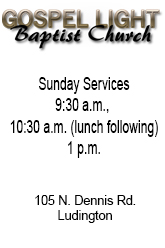 Voters to decide if Pentwater should transition from village to city
Voters to decide if Pentwater should transition from village to city
Proposal creates division in Pentwater
By Allison Scarbrough, Editor
PENTWATER — Village leaders are preparing to ask voters to consider making Pentwater a city, and an opposition group is trying to stop the effort.
While benefits cited include a streamlining of services and tax advantages, opponents claim the transition would “destroy” cooperation between Pentwater village and township residents. The group further states that it “may encourage residents to boycott businesses that support the plan.”
Pentwater Village Council voted 6-1 last month to put the proposal before the voters, said Village Manager Chris Brown. “The village people get to vote like they did when it became a village on how they want to be governed — whether we want to be governed as a city or as a village.”
The question would appear on the ballot in a year or two, Brown said.
“A village resident pays township taxes and village taxes. So, there is a duplication in government.” Under Michigan law, cities have more authority than villages, he added.
A 36-page feasibility study prepared by a citizen advisory committee outlines the proposed plan:
“Some of the more compelling factors that the committee identified when considering moving to a city form of government include: 1) simplifying and streamlining government including elimination of duplicate services and the benefits of one form of government, 2) allowing taxes to be focused on projects within our jurisdiction, 3) an assessor and board of review appointed by and answerable to the city, 4) adoption of a modern home rule charter with powers customizable to our needs, 5) Cities are higher in the hierarchy of government allowing more legislative leverage and a more diverse range of federal and state funding opportunities, 6) sales tax revenue generated in the village/city apportioned to only the village/city.”
According to the 2020 census, the Village of Pentwater had 890 residents and Pentwater Township had 762. Michigan requires 200 residents per square mile for a city.
“Currently, Village of Pentwater residents are part of and pay for two local governments. Residents elect a Pentwater Village Council and a Pentwater Township Board. Taxes support two clerks, two treasurers, and two zoning administrators in two municipalities. As a city, all local affairs will be managed by a government elected by only the citizens of the municipality and responsible only to them. This can also be said of the resulting new Pentwater Township citizenry.”
Potential advantages include:
“As a city, a simplified and streamlined government would allow village residents to deal with only one unit of government instead of two (i.e., tax bills, tax payments, zoning, and planning questions). 2. Duplication of services, related infrastructure, and salaries would be eliminated. 3. Dual taxation and results in a reduction of property taxes would be eliminated. 4. This would allow taxes to be focused on projects within the jurisdiction. 5. An assessor and board of review would be appointed by and answerable to the city for greater transparency and timeliness. 6. Potential confusion over zoning and ordinance authority would be eliminated. 7. A modern home rule charter would be adopted with customizable powers and government structures. 8. Cities are higher in the hierarchy of government than villages, allowing cities to have more leverage with the county, state, and federal governments. Specifically, legislation developed by the state is written for cities and townships. 9. State and federal programs usually designate specialized funding to cities and townships, with villages frequently left out of formulas. Increases in state and federal funding can potentially result in a net reduction in taxes. 10. Jointly held contracts and community events would continue as usual. There will be no effect on the Pentwater School District. 11. Current intergovernmental agreements with Pentwater Township would need to be re-negotiated. 12. A city allows for the formation of non-profit organizations and the funding of civic, artistic, and cultural activities.”
Potential disadvantages include:
“1. Residents of a city cannot run for office or vote in a township election. 2. A qualified assessor appointed by the city must be compensated by the city. 3. Collecting taxes for the county and schools may require additional time and expense. 4. Conducting county, state, and national elections may require additional resources. 5. Current intergovernmental agreements with Pentwater Township would need to be re-negotiated.”
“The discovery process revealed more benefits to incorporating as a city than drawbacks. However, findings from the Pentwater Township ad hoc ‘city committee’ report and additional public input are necessary for a final recommendation. While the obvious advantage of having more control over tax dollars is evident, there are other compelling factors that brought us to this conclusion. Other benefits include the elimination of a duplicative government structure, the potential reduction of village property taxes, the modernization of the government structure, and recognition by the state as a primary unit of government.
“When Pentwater Township convened its own committee to evaluate impacts on the Pentwater Township, its leadership conveyed the thought that they would work with the Village of Pentwater regardless of whether it was a city or not. Both communities would work together for the greater good of all their residents. Under a city and township structure, both communities would be able to focus on matters most important to their respective residents and pursue their best interests. The continuation of a number of public services will need to be further evaluated and addressed during the transition process. The committee is confident that this process will be manageable and that services to either the city as the Village of Pentwater or the Pentwater Township will not be negatively impacted. For village or township residents, a change in municipal structure would be seamless. It is important to note that village residents will have opportunities to voice their opinion through the electoral process. While the committee understands the sentimental value of being a village, the small-town feel would not change. The issue to be addressed was what form of government would best serve the taxpayers and residents of the Village of Pentwater.”
The opposition group issued the following press release:
A proposal to change the Village of Pentwater into a city ran into its first organized opposition today (Aug. 2) when a group of village and township residents announced the formation of Boycott Pentwater City (BPC). The group said it is against the village proposal because they said sponsors have exaggerated or misrepresented potential benefits and because it would destroy historical cooperation between village and township residents.
“Village councilpersons voted for a measure that has no public support and will result in higher taxes in one jurisdiction, and layoffs or reduced services in the other,” said Mark Trierweiler, community leader and founding member of BPC. Trierweiler said BPC intends to enlist the support of hundreds of village residents to defeat a defining vote on the scheme, which could come as early as the first quarter of 2024. The process could take up to five years to complete.
Both jurisdictions have produced competing reports on the impact to their respective governments. During a meeting held at the Baptist Church of Pentwater on Tuesday night (Aug. 1), participants said they were leery of claims made by village leaders and were inclined to vote against it. “One would have to be pretty naïve to think the village could take on new functions for which it has no previous experience without hiring a bunch of people,” said village resident and retired pastor Roy Martens. “Supporting an initiative that’s based on partially false or misleading facts and that doesn’t have the support of the public is not a great place to find yourself in,” Martens added. Trierweiler echoed the concern and said that claims by village leaders that they will be able to take on what are now township functions like elections without adding additional staff simply didn’t pass muster. “What are these employees doing now that they would be able to double their workload without any additional cost to taxpayers,” he asked.
A retired pastor and village property owner, Mick McCoy is deeply concerned about the proposal moving forward without public support. He believes that residents were being “slow rolled” and worn down during a recent village-sponsored meeting he attended, with the express purpose of completing the 15-step process without public feedback.
Village voters will ultimately decide if the village will become a city without input from township residents, many of whom argue they will be negatively impacted by the proposal through higher taxes or diminished services.
Using a Wizard of Oz metaphor, one prominent attendee with a history of community activism told the audience the biggest unanswered question is still: who is behind the curtain? Several participants of village and township informational meetings encouraged organizers to determine who ultimately benefits from a proposal no one seems to want.
Former Village Councilwoman Claudia Ressel-Hodan first proposed the idea more than a year ago and has since presided over community meetings many felt lacked openness about the plan’s many negatives.
Many participants of village- and township-sponsored meetings expressed sadness that the village, which has been losing population for years, would pursue a plan they said would destroy relationships the village needs to survive. Mike and Kendra Flynn, whose families were founding members of Pentwater, expressed profound sadness about the divisiveness they see around town. “This used to be a place where everyone knew everyone else and worked together for the collective good of the community,” said Mike Flynn, adding that Pentwater relationships have always been civil, and people stick together no matter what.”
Trierweiler promised that BPC will sponsor a community wide survey and website to educate voters, expose the level of community opposition to the plan, and may encourage residents to boycott businesses that support the plan at their expense.
A recent controversy in Pentwater over recreational marijuana sales also created division in the community. Pentwater residents voted 333-138 to prohibit marijuana facilities in the May 3, 2022 election.
“We’re giving the people the opportunity to voice their vote — just like we did with the marijuana,” said the village manager.
Please consider helping to fund local news. Mason County Press and Oceana County Press are available for free thanks to the generous support of our advertisers and individuals. Three ways to help us: Venmo: @MasonCountyPress; Paypal: MasonCountyPress@gmail.com; Mail a check to PO BOX 21, Scottville, MI 49454.
This story is copyrighted © 2023, all rights reserved by Media Group 31, LLC, PO Box 21, Scottville, MI 49454. No portion of this story or images may be reproduced in any way, including print or broadcast, without expressed written consent.
As the services of Media Group 31, LLC are news services, the information posted within the sites are archivable for public record and historical posterity. For this reason it is the policy and practice of this company to not delete postings. It is the editor’s discretion to update or edit a story when/if new information becomes available. This may be done by editing the posted story or posting a new “follow-up” story. Media Group 31, LLC or any of its agents have the right to make any changes to this policy. Refer to Use Policy for more information.








































.png)









